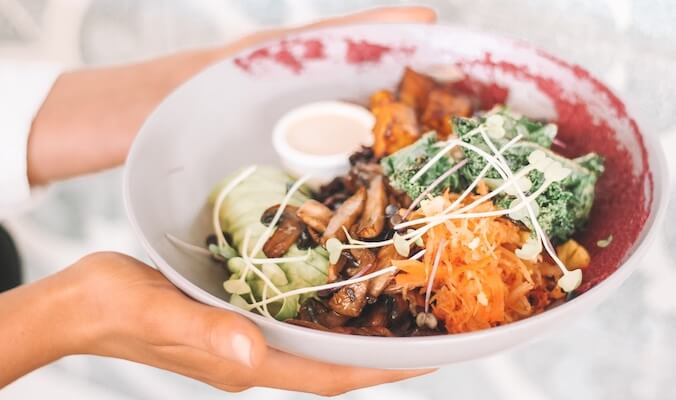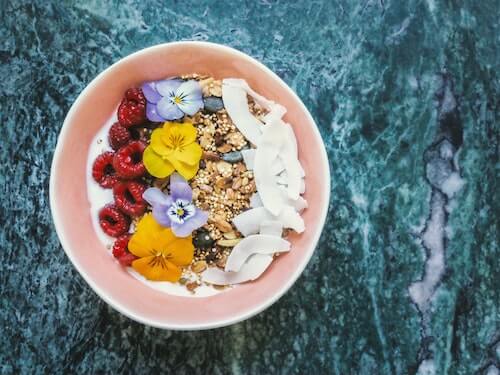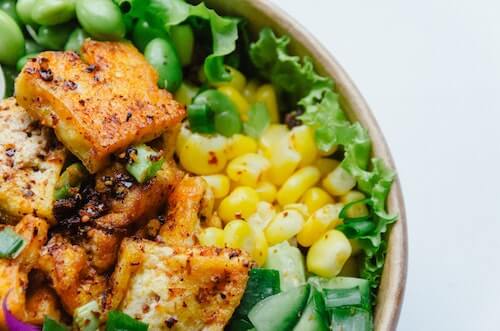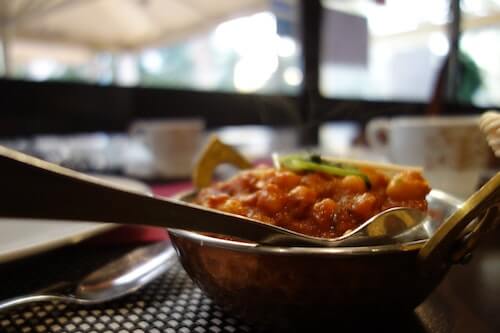Getting the Nutrients on a Vegan Diet

© Maddi Bazzocco
People practice veganism for a number of reasons – for exercising a healthier way of life, for improving their mental health or maybe to act responsibly towards the environment and shun all kinds of mistreatment of animals. While it is a hard choice for many to make, it does come with its long-term benefits, if practiced the right way.
Following a strict vegan diet has many advantages that come from the rich nutrients that you get from a plant-based meal. While protein remains a super nutrient, calcium, iron, zinc and omega-3 fatty acids are some of the other major nutrients you get from going vegan.
Busy work schedules, waging two jobs and household chores could mean lesser time for procuring high quality vegan foods. This is why many go for the option of vegan food suppliers and meal services like Veestro. Here’s an analysis on Veestro and a few honest thoughts on its vegan meal delivery system.
Here are the nutritional benefits of a vegan diet?
CALCIUM
Calcium not only helps improve bone strength but also helps our nervous system perform better. Vegans, though, have a concern whether they can get optimum amounts of calcium from a non-dairy diet. In such a case, one can go for dairy substitutes like calcium-set tofu, calcium fortified milk and tofu yoghurt. Apart from these – spring greens, kale, dried figs, almonds and chia seeds have high amounts of calcium.
IRON
Iron is one of the most important nutrients for the human body. It helps make new DNA, produce red blood cells and helps in carrying oxygen in the blood.
Studies have revealed that iron levels among vegans and vegetarians tend to be higher than those who are non-vegetarians. Vegans can get an adequate amount of iron from foods like tofu, lentils, soy and chickpeas which are naturally rich in protein as well. Other foods rich in iron content are beans, peas, dried fruits and seeds, cereals and enriched breads. Vitamin C helps in iron absorption in the body and it is advised to complement these foods with fortified orange juice.
ZINC
Being the most important metal after iron in the human body, zinc helps improve our immune system and create enzymes. Helping to cure common cold and faster wound healing are the other benefits of zinc.
Though the content of zinc is lower in plant foods as compared to animal foods, there are many zinc-laden supplements one can take if you’re on a vegan diet. These are fortified cereals, toasted wheat germ, hemp seeds, asparagus, oatmeal quinoa, black beans, green peas, spinach and pecans.
OMEGA-3 FATTY ACIDS
They help improve health of our brain and eyes and adequate amounts of omega-3 fatty acids are important for reducing risk of inflammation, breast cancer, depression and attention deficit hyperactivity disorder (ADHD). Walnuts, flax seeds, chia seeds and soybeans are rich in Alpha-linolenic acid (ALA), which is an essential omega-3 fatty acid.
VITAMIN B 12
B12 helps in fighting bodily and mental fatigue and helps in keeping our nervous system and blood cells in check. Generally, vitamin B12 comes in animal foods and dairy products but vegans should go for viable alternatives like vegan-friendly milks, spreads, breads, breakfast cereals and nutritional yeast flakes.

You need to have an increased level of B12 intake if you’re a smoker since your body is losing nutrients. For expectant mothers and infants, B12 is a major nutrient to have in their diet.
VITAMIN D
Vitamin D influences our immune system, mood, memory and muscle recovery apart from helping in absorption of calcium and phosphorus from our gut. Our body produces levels of vitamin D from exposure to sunlight and hence it is advised that one should spend 10 minutes in the sun at least 3 or 4 times a week.
IODINE
It is crucial for the healthy function of our thyroids. Iodine deficiency among pregnant women and infants can lead to harmful intellectual disability. Iodized salts, seafood and seaweed contain high levels of iodine. However, vegans who don’t take iodized salts, can go for an iodine supplement.
PROTEIN
It is common for most vegetarians to ask the question where we get protein from since we’re not having meat. Well, if you’re a vegetarian and eating a balanced diet, then your body could be getting more than enough of protein.

What vegan foods can provide us with protein?
Tofu: It is one of the best sources of protein among vegan foods. It is gluten-free and low in calories. A half cup of tofu contains only 94 calories. It has a well-balanced amino acid profile making it a good source of protein.
Seitan: A source of lean veggie protein, seitan is a meat substitute that can be cooked in many different ways.
Soy: Foods made from soy are naturally cholesterol free and contain low saturated fat. It helps lower blood pressure among other cardio-vascular benefits.
Chickpeas: They help in weight management, improve digestion and help in reducing risk of several diseases.
Nuts: Nuts are a great source of fibre and rich in antioxidants. They raise good cholesterol and help lower bad cholesterol and help you feel full in the stomach.
Lentils: Be it brown, yellow, black or green, lentils contain high amounts of protein. A diet high in lentils can help reduce risk of diabetes, cancer and heart disease.
Brown rice: Brown rice is a healthier option than white rice and since it is a whole grain, it has more nutritional benefits. Along with vital vitamins and minerals, brown rice provides powerful plant compounds as well.



